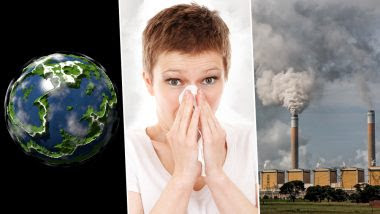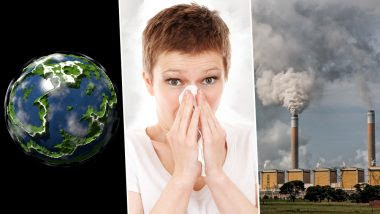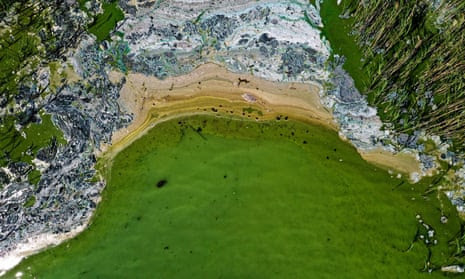
The IPCC, the Intergovernmental Panel on Climate Change, believes that the increase in carbon dioxide concentrations in the atmosphere is primarily due to the use of fossil fuels and secondarily due to land use change. The impact of fossil fuel use was popularized by former U.S. Vice President Al Gore’s documentary, An Inconvenient Truth.
Among the effects caused by global warming, the most notable are changes to the environment, consequences for human health, rising sea levels that will threaten coastal areas, and changes in precipitation, causing either more droughts or more floods and threatening biodiversity. In some parts of the world, such as Nunavut in Canada where the explorer Will Steger takes the example of the population of Baffin Island, hunters are confronted with the decrease in the thickness of the ice which makes them take more risks to approach the animals. In addition to the visible effects on people’s lifestyles, global warming is expected to have a direct and significant impact on health.

Regions that contribute the least to global warming are the most vulnerable to diseases caused by rising temperatures, such as the coasts of the Pacific Ocean, the Indian Ocean or sub-Saharan Africa. The WHO already estimates that about 150,000 deaths per year are due to global warming and this number could double by 2030. The main health effects of global warming are related to :
infectious diseases.
According to the IPCC, the areas most affected are tropical regions, particularly in Africa, where the rise in temperature favors the proliferation of mosquitoes. Populations will be more exposed to malaria, dengue fever and other diseases transmitted by insects. Countries that were previously spared are now or will be affected by this type of infection, such as the United States, the United Kingdom, Europe, Azerbaijan, Tajikistan and Turkey.
The United Kingdom, for example, recorded several cases of Legionnaires’ disease in 2006, a lung infection whose proliferation is favored by global warming.

Heat waves can have serious consequences for vulnerable populations such as the elderly and the sick. In 2003, the heat wave that hit Europe caused about 35,000 deaths. In the United Kingdom, the Hadley Center for Climate Prediction and Research has demonstrated in a study that the increase in heat waves is linked to the emission of greenhouse gases.
The IPCC estimates that hot days and nights will become more frequent, and cases of hyperthermia that can cause death if left untreated are the most common consequence of rising temperatures. People’s ability to adapt to temperatures varies with income, with wealthier regions able to use technological advances to improve air conditioning and home insulation to block the heat while developing countries lack the know-how, resources, and health care systems to cope with these changes.
The loss of agricultural productivity, due to droughts caused by global warming, will worsen the living conditions of populations in certain regions of the world. The World Wildlife Fund estimates that rainfall patterns, food security and water supply for millions of people could be worsened by climate change.
According to the IPCC report, in the next few years, between 75 and 250 million people living in Africa are expected to face increasing difficulties in obtaining water supplies and food shortages, with a drop in agricultural productivity of around 50%. The food shortage that could affect about 130 million people in Asia due to rising temperatures could also affect the African population.
Asthma and other respiratory diseases, especially among people with existing heart problems, as they are more vulnerable to rising temperatures.
Those living in regions that already experience high temperatures are even more affected because their cardiovascular system has to work at a higher pressure level to keep their body temperature at a normal level. High temperatures also increase the concentration of ozone, which can damage lung tissue and cause complications for people with asthma and respiratory diseases.

Global warming can also pose a threat to national security because it affects food security and can lead to conflicts over access to resources, especially in poor countries when it can no longer meet basic needs. Ugandan President Yoweri Museveni described climate change as an act of aggression by the rich against the poor at the UN. Many countries have already realized the seriousness of the consequences that global warming could generate.
For example, the U.S. Supreme Court has ordered the federal government to take action to regulate CO2 emissions, demonstrations have been held in U.S. cities such as Boston and New York to urge the government to reduce emissions by 80% by 2050, and residents and businesses in Sydney, Australia, have turned off the lights to draw attention to global warming.
Businesses also understand the need to implement environmentally friendly measures. PepsiCo, for example, has decided to purchase one billion kilowatt-hours of renewable energy credits over three years. However, reducing the effects of global warming will only be effective with the commitment of the countries that emit the most greenhouse gases.




